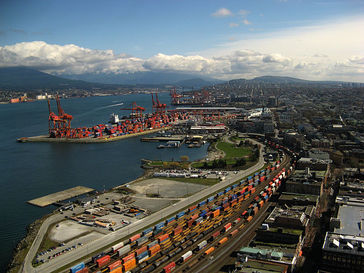 Image From: http://globial.com
Image From: http://globial.com What are the factors that will encourage a nation to import or export merchandise? Because the expenses that are associated with manufacturing differ within countries, the same commodities will be distributed for various prices in various locations. A nation exporting or importing their items will depend on the rate that the local manufacturers charge relative to the manufacturers from around the world who produce the same thing.
For example, nations such as China will export their textiles because they can manufacture these with fewer expenses and lower rates compared to the rest of the distributor of customer packed goods in the world. On the other hand, nations like the United States will import textiles from China because the American textile manufacturers go through more expenses and therefore charge expensive rates compared to the rest of the world.
If you are to observe any number of items that you use every day, like your food, shoes, a pen, or a laptop, you will notice that all of these products were created in various locations. Most of these foreign goods arrived through commerce. It is in the interest of most of these nations to engage in commerce since the rule of “comparative advantage” states that global trade benefits every nation by letting them specialize on their expertise.
The concept behind the competitive advantage begins with a simple start, making this intuitive. If an entity (a distributor of customer packed goods, location or nation) can manufacture a product with less expense compared to a second entity, and the second entity is able to manufacture a different item with less expense compared to the first entity, then it is clear that this situation would benefit both entities by trading the inexpensive commodity that each entity has. If they agree to do this business transaction, both entities will gain something from this commerce.
For example, nations such as China will export their textiles because they can manufacture these with fewer expenses and lower rates compared to the rest of the distributor of customer packed goods in the world. On the other hand, nations like the United States will import textiles from China because the American textile manufacturers go through more expenses and therefore charge expensive rates compared to the rest of the world.
If you are to observe any number of items that you use every day, like your food, shoes, a pen, or a laptop, you will notice that all of these products were created in various locations. Most of these foreign goods arrived through commerce. It is in the interest of most of these nations to engage in commerce since the rule of “comparative advantage” states that global trade benefits every nation by letting them specialize on their expertise.
The concept behind the competitive advantage begins with a simple start, making this intuitive. If an entity (a distributor of customer packed goods, location or nation) can manufacture a product with less expense compared to a second entity, and the second entity is able to manufacture a different item with less expense compared to the first entity, then it is clear that this situation would benefit both entities by trading the inexpensive commodity that each entity has. If they agree to do this business transaction, both entities will gain something from this commerce.
 RSS Feed
RSS Feed